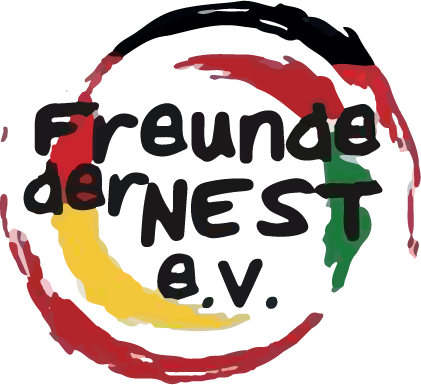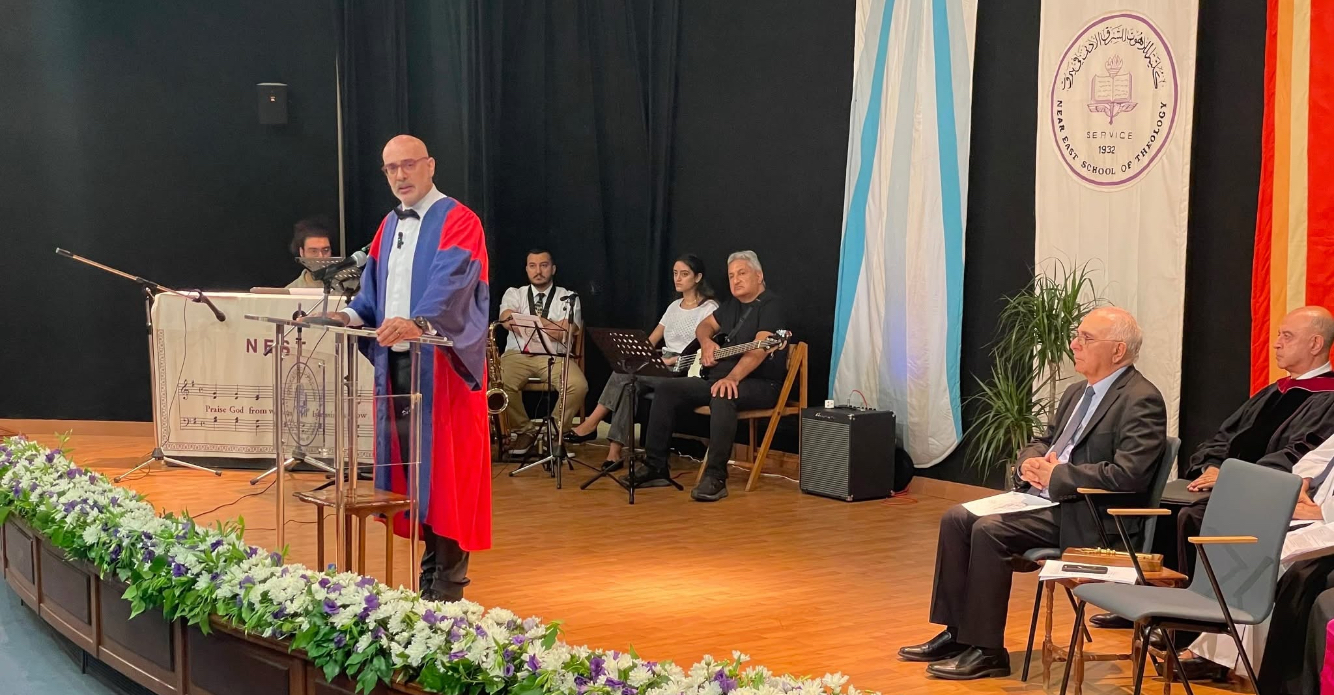Text von Uwe Gräbe
Accad describes his most formative years during the Lebanese Civil War. While he grew up within a Muslim majority in West Beirut, near NEST, he moved to Christian East Beirut at the age of 13 – only to discover that there, Muslims were the “unknown others”. He says, that sectarianism, in Lebanon, is a “blend between religious affiliation and party politics”. It can therefor be distinguished from “tribalism” in other parts of the Arab world, in as much as in Lebanon, the “religious family”, the sect, is the “tribe”. Accad stresses that diverse ways of engaging are needed for Christian-Muslim relations. He has studied at NEST from 1992-1996, and later in Oxford. He concluded his PhD on 6 centuries of Christian-Muslim Relations on September 11th, 2001 (!). After 9/11, the American experience has been taken out of its historical context (similar to October 7th, 2023) – and became a starting point of history, the defining moment for an entire generation. After his training, Accad spent most of his time teaching at the Arab Baptist Theological Seminary (ABTS) in Beirut, which has been in line with his own personal faith background and up-bringing. Given the multiple crises and multiple traumata in Lebanon since the start of the “Thawra” (Revolution) on October 17th, 2019, though, he decided to become more involved in public life. Part of this involvement is the multiple narrative approach to the Lebanese Civil War.
As President of NEST, he doesn’t see himself as a “maintenance person”. Having been brought up in times of instability, he feels well equipped to face the challenges of constant change. He says, that studying in Beirut, for students from abroad, is a step beyond the cognitive level, or even an invitation to a culture clash. When Accad taught at Fuller Theological Seminary in Pasadena, it was also a kind of culture clash for him: Intercultural learning means to suspend one’s own judgement. Through blended experiences, we become shaped. In the center of Beirut, NEST has amazing opportunities and possibilities for a public theology, well beyond the curriculum in place, which is from 1991. Ras Beirut is the geographical heart of trauma and instability. So what can NEST do if we think more in terms of public theology? NEST doesn’t have to be big to become a transforming actor here. It may rather fulfill the role of the “mustard seed”. According to Jesus, it is always the small things that have a big impact: salt, light, leaven, mustard seeds… Recently, the big trees in front of NEST had to be cut back, which drove the birds away. But the trees and even more colorful birds will eventually come back – which is a beautiful image for NEST itself: growing, trimming, growing back again, and attracting all kinds of birds.

